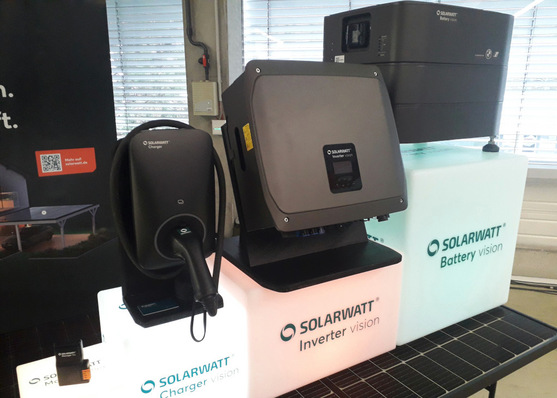Electric vehicles, smart hot water tanks and battery storage are key to unlocking the Government’s wind power ambitions, by enabling home and business owners to trade electricity providing balance to the electricity grid, according to a report by Centrica.
Such inter-trading of electricity is known as flexibility and the energy company has concluded the UK’s biggest trial of its potential in over 200 homes and businesses in Cornwall. Over three years, the £16.7 million Cornwall Local Energy Market saw 310MWh of power traded successfully, with greenhouse gas savings of nearly 10,000 tonnes a year as a result.
Balancing peaks and troughs of the power grid
In simple terms, flexibility means paying businesses and homes to increase, decrease or shift the times that they use or produce power in response to the needs of the grid. It is essential if the UK is to meet net zero goals and can help balance the peaks and troughs that come with low carbon sources of energy such as solar power and offshore wind.
Centrica has calculated that in order to accommodate the Government’s plans to power every home with offshore wind, as much as 25TWh of electricity will need to be traded flexibly every year - that’s almost double the annual electricity demand of Wales.
Manage network constraints also at a local level
Jorge Pikunic, Managing Director, Centrica Business Solutions said: "Because solar and wind are dependent on the weather, sometimes they produce too much power for the grid to accommodate, and sometimes too little to meet demand. This could lead to assets being switched off, which is expensive and inefficient; and in extreme cases power cuts. Flexibility offers an alternative, more cost-effective way of tackling these constraints and gives consumers a real stake in managing the energy system. At a national level, the system is managed using flexible demand, battery storage and flexible generation, however, it is becoming increasingly important to manage network constraints at a local level too. The trial in Cornwall has proved that homes and small businesses can play a role, alongside larger industry, in market-based procurement of flexibility - a genuinely new tool in our low-carbon energy system toolbox."
Up to 35% of cost savings
As part of the trial, five megawatts of low carbon technology was installed across more than 100 businesses and a further 100 homes received a combination of solar panels and wall mounted battery storage. The stored capacity of the home battery systems was combined to form a Virtual Power Plant and, when aggregated, was able to trade with the grid operators, completely autonomously. Some businesses saved as much as 35% on energy costs by operating at times more aligned with grid needs.
A major stumbling-block on the introduction of a more flexible and responsive electricity grid was also overcome when, for the first time anywhere in the world, the local Distribution System Operator (Western Power Distribution) and the Transmission System Operator (National Grid ESO) both procured flexibility simultaneously via Centrica’s pioneering auction-based marketplace. This paves the way for a smarter grid that is better able to accommodate renewable energy.
Pave the way for a smarter grid
Centrica’s ground-breaking LEM platform allows buyers to place bids for flexibility services, which are then matched with offers by sellers (homes and businesses) through auctions that run from months ahead all the way to same day. The platform manages the process for both sides from contract creation all the way to baselining and settlement, making it easy to trade flexibility.
See also:
Coalition of UK industries calls for renewables tax reform
“We showed that solutions like the Cornwall LEM can pave the way for a smarter grid that is better able to accommodate renewable energy; save money and reduce carbon for consumers; and create new economic opportunities for both homeowners and businesses. With the right policy actions by the Government, we believe that the UK can lead the world in creating solutions to integrate greater levels of renewables onto our energy systems,” Jorge Pikunic added.
The trial was delivered in partnership with the local distribution network operator Western Power Distribution, alongside National Grid ESO, Exeter University and Imperial College London, with additional support from the Belgian-based advanced energy analytics consultancy N-Side. It was funded by Centrica and the Centrica Energy for Tomorrow Fund, as well as a £11.6 million grant from the European Regional Development Fund. (mfo)







